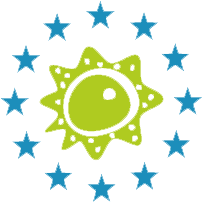ESCAIDE 2021 – a summary of Day 3
View the written summary of the second day of ESCAIDE 2021, covering the main highlights, sessions and plenary.
We were all swept along by the discussion of “the silent tsunami”, to quote Sandra Gallina from DG SANTE, kicking off day 3 of ESCAIDE 2021 in a special session dedicated to European Antimicrobial Awareness Day. The silent tsunami refers of course, to antimicrobial resistance – the silent pandemic that COVID-19 has pushed even more out of the media spotlight. While dominating global news, the COVID-19 has pandemic has also reaffirmed some valuable truths that should not be forgotten when continuing the fight against antimicrobial resistance. These include the fact that decisive and collaborative action is vital when facing a potential pandemic, in addition to once again clearly showing the interdependence of human health, animal health and the environment, and the importance of the one health approach.
“While COVID-19 dominated the news, the media has been silent about another, growing pandemic: antimicrobial resistance. The silent tsunami is slowly gathering strength and we must address it now.” – Sandra Gallina, DG SANTE
The distinguished keynote speakers and panellists also emphasised the many dire future consequences of not dealing with the issue of antimicrobial resistance now, and the fact that disappointingly, awareness and a sense of urgency is still lacking among decision makers and the general public. Strong words from Andrea Ammon, the director of ECDC, reminded all of us that “It is our responsibility to make sure antibiotics still work for future generations,” and that “there is still time to turn the tide”. Keeping our heads above water rests on three main pillars:
- the prudent use of antibiotics
- good prevention and control measures in hospitals and in long-term care facilities – (hand hygiene!)
- promoting the development of new antibiotics with new mechanisms of action.
“It is our responsibility to make sure antibiotics still work for future generations.” – Andrea Ammon, Director ECDC
We again had a wide range of topics covered in our afternoon sessions, with one of the most pertinent perhaps, exploring COVID-19 vaccination and vaccine hesitancy. This session noted that as you might have imagined, people who are strongly in favour of vaccination and those who are strongly against vaccination focus on very different aspects of vaccination with different scopes; the former predominantly take a big-picture view and talk about stopping the pandemic, while the latter focus on the details surrounding the vaccine itself without zooming out. Another session focused on healthcare associated infections, with one notable study investigating infection prevention and control (IPC) measures in psychiatric institutions exploring the multidimensional approach needed to reach a balance between mental health treatment and IPC needs.
The closing plenary of ESCAIDE 2021 addressed the inequality pandemic – how COVID-19, in the past two years, has both exposed and deepened inequalities within countries and across the world. The speakers sought to not only highlight these inequalities, but to give concrete examples of good practices for tackling health equity and explore the role of public health specialists and researchers in this work, allowing the audience to leave with a tangible understanding of how they can contribute to promoting health equity.
Key themes these included how a lack of “equity data” means we cannot tackle health inequality because we can’t see it – data is often only collected on sex and age but not other characteristics that are often associated with inequalities, including race and socioeconomic status. Public health professionals and epidemiologists can therefore work to also acquire data on these factors. An example was given of how based on early research into the social determinants that resulted in higher cases and deaths within certain groups in London helped shape the response to tackle this as the pandemic continued. This involved working within communities, giving voices to vulnerable groups and listening to their concerns. Considerable groundwork that has been done in the COVID response to build networks within communities can be translated to tackle other health concerns and reduce inequity of access to healthcare.
“We need to engage with target groups and strengthen cultural competence resources, so that all communities can benefit from any measure we take and can also see their own communities reflected in things we publish and decide.” – Kevin Fenton, Regional Public Health Director for London
The discussion continued to the unequal global vaccine rollout: a high percentage of EU populations are double vaccinated while less than 5% of the population of the African continent have received their first vaccine. Why? Vaccines were rapidly developed due to immense scientific collaboration and strong public funding, but a lack of commitment by governments and pharmaceutical companies has led to a monopoly on the technical knowhow needed to produce vaccines and the hoarding of vaccines by wealthy countries. Policy changes are needed to prevent this in the future, and these could come from the upcoming pandemic treaty discussions.
A poll showed that the audience felt they wanted to do more to address inequity but didn’t know how. The panelists responded, saying that as epidemiologists and public health professionals we may not be able to speak up and advocate ourselves, but we can do more to provide communities with the data and information they need to be able to advocate more strongly themselves and contribute to the reduction of health inequity.
